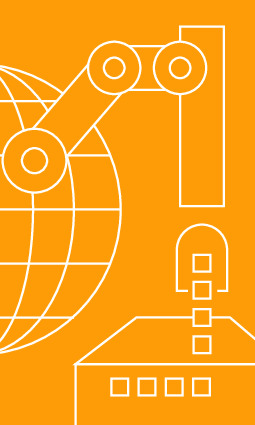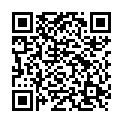|
|
|
| Module code: MASCM-558 |
|
2V+2PA (4 hours per week) |
|
6 |
| Semester: according to optional course list |
| Mandatory course: no |
Language of instruction:
German |
Assessment:
Written exam (50% of the total grade) and project work (50% of the total grade)
[updated 08.05.2023]
|
MAMS-558 Marketing Science, Master, ASPO 01.04.2016
, optional course
MAMSc-558 Marketing Science, Master, SO 01.04.2025
, optional course
MASCM-558 Supply Chain Management, Master, ASPO 01.04.2017
, optional course
WIM22-WPM-I-703 (P450-0218) Industrial Engineering, Master, ASPO 01.04.2022
, semester 3, optional course
|
60 class hours (= 45 clock hours) over a 15-week period.
The total student study time is 180 hours (equivalent to 6 ECTS credits).
There are therefore 135 hours available for class preparation and follow-up work and exam preparation.
|
Recommended prerequisites (modules):
None.
|
Recommended as prerequisite for:
|
Module coordinator:
Prof. Dr.-Ing. Christian Köhler |
Lecturer: Prof. Dr.-Ing. Christian Köhler
[updated 26.07.2024]
|
Learning outcomes:
After successfully completing this module students will be able to:
• reflect critically on the origins, scope and current status of the implementation of the Industry 4.0 vision
• answer questions on the current challenges, constraints and requirements of Industry 4.0
• evaluate initial Industry 4.0 implementations, but also any existing limits of implementations in production companies, in writing
• discuss the relevance of technology, organization and employees in implementing Industry 4.0 and put those dimensions in relation to each other
• demonstrate strategies and process models for implementing Industry 4.0 in production companies and develop concepts for operational implementation on the basis of this knowledge.
• answer questions about existing concepts in current research regarding the implementation of Industry 4.0, especially in SMEs, based on very limited resources.
• discuss strategies and process models, especially with regard to the involvement of social partners in the development and design of I 4.0 implementations.
• learn and test current implementations of Industry 4.0, especially in the area of possibilities/benefits and limitations of assistance systems in production companies.
• analyze company processes for Industry 4.0 potentials within the framework of a project and develop and evaluate solution concepts.
• critically reflect their project results and explain them to project clients
[updated 08.05.2023]
|
Module content:
1. Industry 4.0 - The Basics:
1.1 I 4.0 principles, significance, organizational design principles
1.2 I 4.0 challenges for enterprises (SMEs/NSMEs)
1.3 I 4.0 and new business models (hybrid value creation)
1.4 Visions of tomorrow’s factory: Chances and risks
1.5 Adaptability and Industry 4.0
1.6 I 4.0 interactions between technology/organization/employees
1.7 Co-determination aspects: Involving social partners
1.8 Changes in work and leadership
1.9 Qualification and employee development under I4.0
1.10 Excerpts from the current status of I4.0 research projects
2. Operational implementation of Industry 4.0 in companies:
2.1 Process model for introducing Industry 4.0
2.2 Economic evaluations during the introduction of I 4.0
2.3 Lean methods and adaptability as a basis for introducing I4.0
2.4 Procedures for involving social partners (involvement and regulations)
2.5 I 4.0 in practice: context-sensitive, intelligently adaptive assistance and knowledge services
2.6 I 4.0 in practice: Synchronous production through semi-autonomous planning and human-centric decision support
3. Industry 4.0 - Project:
3.1 Analytical methodology
3.2 Applying the anaylsis methodology
3.3 Developing Industry 4.0 business cases
[updated 08.05.2023]
|
Teaching methods/Media:
Beamer presentation, blackboard, script, case studies, discussion, group work, project, project presentation and project report
[updated 08.05.2023]
|
Recommended or required reading:
• Praxishandbuch Industrie 4.0 : Branchen - Unternehmen - M & A
Lucks, Kai. - 1. Auflage 2017. - Stuttgart: Schäffer-Poeschel, 2017
• Industrie 4.0 konkret : Ein Wegweiser in die Praxis [electronic resource]
/ Jahn, Myriam. - Wiesbaden: Springer Gabler, 2017
DOI-Link: 10.1007/978-3-658-17770-6 [Titel anhand dieser DOI in Citavi-Projekt übernehmen]
• Klein(st)- und Mittelbetriebe im Kontext zu Industrie 4.0 : die neue Entwicklung der Wirtschaft
Kettl, Alexander. - Saarbrücken : AV Akademikerverlag, [2017] [Hochschulschrift]
• Handbuch Industrie 4.0 : Geschäftsmodelle, Prozesse, Technik
Reinhart, Gunther [HerausgeberIn]. - München : Hanser, [2017]
• Handbuch Industrie 4.0
Vogel-Heuser, Birgit [HerausgeberIn] ; Bauernhansl, Thomas [HerausgeberIn] ; Ten Hompel, Michael
[HerausgeberIn]. - Berlin; [Heidelberg] : Springer Vieweg
• Integrierte Unternehmensplanung : Anforderungen, Lösungen und Echtzeitsimulation im Rahmen von Industrie 4.0
Mosler, Andreas. - Wiesbaden : Springer Gabler, [2017]
• Die digitale Transformation gestalten
acatech [HerausgeberIn]. - München : Hanser, [2017]
• Wandlungsfähigkeit durch modulare Produktionssysteme
Kreimeier, Dieter [HerausgeberIn]. –Herrmann, Klaus [HerausgeberIn]. – Frakfurt a.M. : VDMA Verlag, [2013]
[updated 08.05.2023]
|


